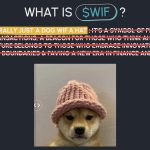London — An Australian computer scientist who claims he invented bitcoin is not “Satoshi Nakamoto,” the pseudonymous inventor of the cryptocurrency, a judge at London’s High Court ruled on Thursday.
Craig Wright has long claimed to have been the author of a 2008 white paper, the foundational text of bitcoin, published under the pseudonym.
The Crypto Open Patent Alliance (COPA) took Wright to court to stop him suing bitcoin developers, asking for a ruling that Wright was not Satoshi.
Judge James Mellor said at the end of closing arguments on Thursday that the evidence Wright was not Satoshi was “overwhelming.”
“Dr Wright is not the author of the Bitcoin white paper,” Mellor said. “Dr Wright is not the person who adopted or operated under the pseudonym Satoshi Nakamoto in the period 2008 to 2011.”
COPA, whose members include Twitter founder Jack Dorsey’s payments firm Block (SQ), said the ruling was “a win for developers, for the entire open source community and for the truth.”
“For over eight years, Dr Wright and his financial backers have lied about his identity as Satoshi Nakamoto and used that lie to bully and intimidate developers in the bitcoin community,” a COPA spokesperson said in a statement.
“That ends today with the court’s ruling that Craig Wright is not Satoshi Nakamoto.”
A spokesperson for Wright said he was “not prepared to speak to anyone at this time.”
COPA had accused Wright of repeatedly forging documents to substantiate his claim, including during the trial itself, which Wright denied when he gave evidence.
Its lawyer, Jonathan Hough, said at the start of the trial in February that Wright’s claim was “a brazen lie, an elaborate false narrative supported by forgery on an industrial scale.”
Hough said that “there are elements of Dr Wright’s conduct that stray into farce,” citing his alleged use of ChatGPT to produce forgeries.
But he added: “Dr Wright’s conduct is also deadly serious. On the basis of his dishonest claim to be Satoshi, he has pursued claims he puts at hundreds of billions of dollars, including against numerous private individuals.”
Wright’s lawyers, however, argued in court filings that he had produced “clear evidence demonstrating his authorship of the white paper and creation of bitcoin.”
In their closing arguments, COPA’s lawyers asked Mellor to refer the case to Britain’s Crown Prosecution Service “for consideration of prosecution for the offenses of perjury and perverting the course of justice.”
Mellor did not indicate whether or not he would do so.
Read the full article here




